Neuroergonomics and Cognitive Readiness Monitoring for operational safety in the manufacturing industry.
In early 2021, Braskem’s plant in Alagoas had been shut down for more than a year and a half.
With the resumption of operations, the company’s leadership decided to invest in measures to ensure the safe return of the team to activities.
It was in this context that the partnership between Cognittiv and Braskem began. Initially, only 23 employees were monitored by the solution.
Due to the success of the application, monitoring was quickly expanded to the entire region, covering more than 330 people.
Another challenge of the program was to reduce the number of accidents with employee leave, which historically had an average of 3 occurrences per year.
The operational environment of several critical areas was the focus of a detailed neuroergonomic analysis, with delivery of an action plan for each point raised. The objective was to reduce the cognitive demand of team members, marking the beginning of Cognittiv’s implementation. Daily cognitive readiness monitoring of the teams participating in the program also began, through the use of the online platform. It consists of a cognitive task that requires the engagement of visual perception and attention, short-term memory, motor action and decision making. Lasting approximately two to three minutes, the participant’s performance is analyzed, in real time and on a daily basis, through psychophysical methods that allow quantitative estimation of a set of metrics.
We avoided about
9 serious accidents
with people.
In 2024, after almost three years of the program’s start, the company celebrates zero accident records with the monitored teams.
Considering the average of previous years, about nine serious accidents with people were avoided.
Small adjustments in the work environment, raised by the neuroergonomic analysis, had a great positive impact on task execution, contributing to increased safety in the operation.
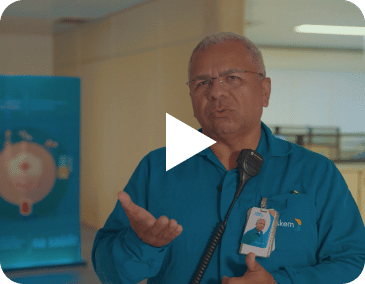
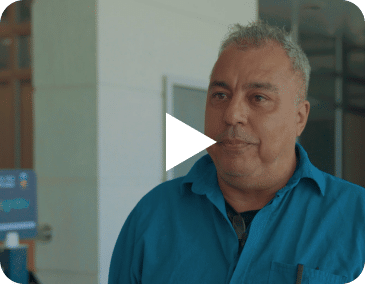

The beginning of Cognittiv solution implementation was marked by a proprietary methodology neuroergonomic analysis, with delivery of an action plan for each opportunity for improvement in the work environment.
Daily cognitive readiness monitoring of the teams participating in the program also began, through the use of the online platform. It consists of a cognitive task that requires the engagement of visual perception and attention, short-term memory, motor action and decision making.
Lasting approximately two to three minutes, the participant’s performance is analyzed, in real time and on a daily basis, through psychophysical methods that allow quantitative estimation of a set of metrics.
PRIO, a publicly traded Brazilian company focused mainly on oil and gas production, sought Cognittiv with the desire to increase the operational safety of its Frade Platform. Cognittiv proposed the use of technology and science, bringing an innovative solution, with the monitoring of the cognitive readiness of the onboard teams, in a simple and effective way. Thus began the partnership of the two companies, in early 2024. About 30 people participate in the program, onboard and at the forefront of various areas of operation, such as production, crane and ballast.
Results of the analysis of incidents recorded five months before the start of Cognittiv’s operation, and five months after.
A monitoring of incidents related to human error was carried out, referring to five months prior to the start of the program and the five months following this start.
A 45% reduction in incidents due to human error was observed.
In the six months prior to the start of the program, six incidents with production loss between 6h and 12h were recorded.
This number dropped to zero in the following four months.

Cognitive Readiness Monitoring in Risk Management in High Complexity Environments
Cognitive functions are shaped by a dynamic interaction of internal and external stimuli.
This complex interaction influences fundamental cognitive components, especially perception, attention, memory, learning and decision making.
In this project, the challenge was to develop a method simple, fast and sensitive enough to detect fluctuations in cognitive readiness and other metrics associated with it, such as motor readiness, impulsivity control and accuracy.
The Cognittiv application was able to detect a significant drop in the levels of all measured metrics, evidencing its sensitivity in monitoring fundamental cognitive functions.
A group of 35 volunteers was studied under controlled conditions, in which the temporal evolution of cognitive readiness and other associated metrics was investigated after ingestion, in a single dose, of a mixture of vodka and orange juice containing 700 mg of alcohol per kg of body mass (equivalent to the ingestion, by a person weighing 70 kg, of 3 to 4 doses of 40% vodka).
With this challenge in hand, we conceived and developed the Cognittiv application, which consists of a cognitive task that requires, in its execution, the engagement of visual perception and attention, short-term memory, motor action and decision making. Lasting approximately three to four minutes, the participant’s performance is analyzed, in real time, through psychophysical methods that allow quantitative estimation of the set of metrics mentioned above.
The larger graph displays the time course, at 30-minute intervals, of metrics expressing cognitive readiness (Cog Read), motor readiness (Mot Read), impulsivity control (Imp Cont) and accuracy measured by the Cognittiv application after ingestion of 700 mg of alcohol per kg of body mass (t = 0). The inset in the lower right corner shows the time course of blood alcohol levels in the control (placebo) and experimental (alcohol ingestion) groups, reaching, in the latter, values between 65 and 75 mg of alcohol/100 ml blood in the 90 minutes after ingestion of the mixture (a.u.: arbitrary unit; min: minutes; [Alcohol]blood: blood alcohol concentration).
*Study approved by the Human Research Ethics Committee of the Institute of Biomedical Sciences of the University of São Paulo with opinion number 7,151,420 (CAAE: 78711224.9.0000.5467).
Neuroergonomics and Cognitive Readiness Monitoring for operational safety in the manufacturing industry.
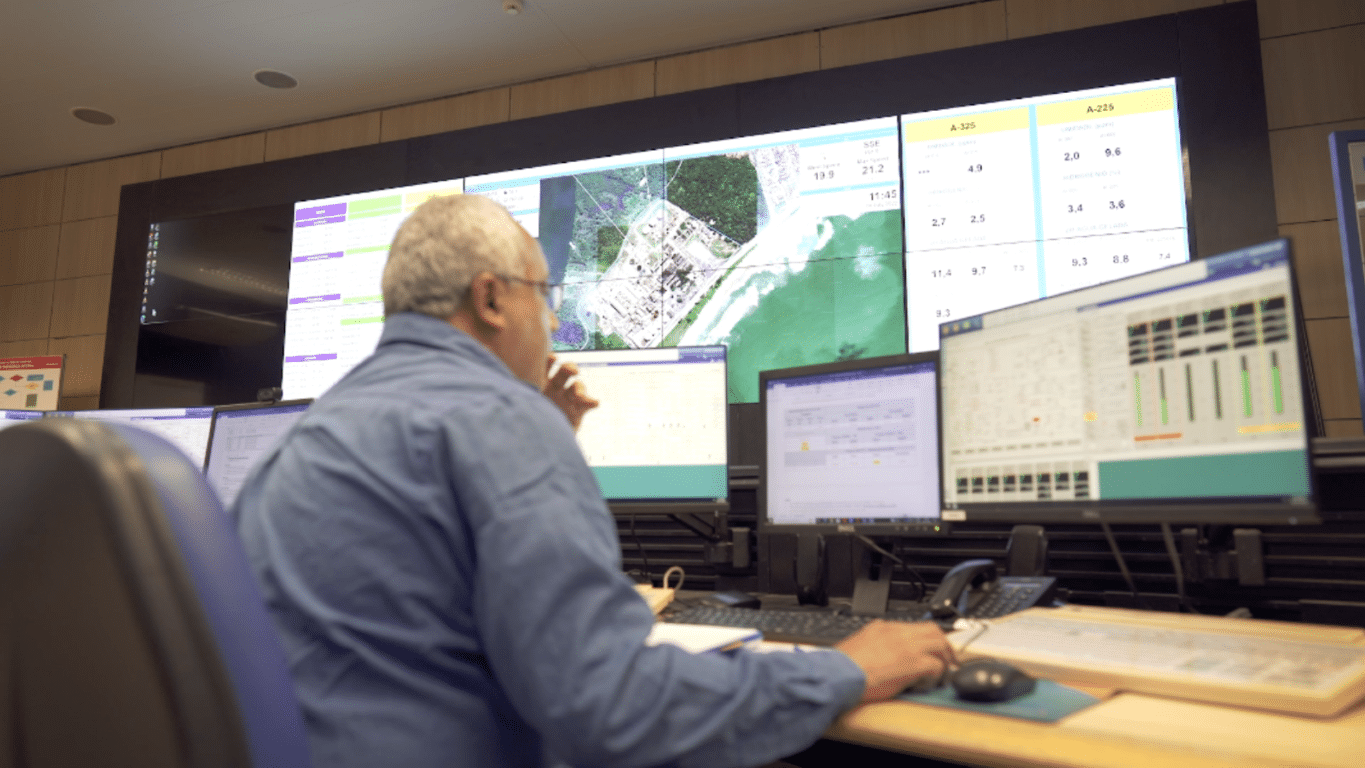


In early 2021, Braskem’s plant in Alagoas had been shut down for more than a year and a half.
With the resumption of operations, the company’s leadership decided to invest in measures to ensure the safe return of the team to activities.
It was in this context that the partnership between Cognittiv and Braskem began. Initially, only 23 employees were monitored by the solution.
Due to the success of the application, monitoring was quickly expanded to the entire region, covering more than 330 people.
Another challenge of the program was to reduce the number of accidents with employee leave, which historically had an average of 3 occurrences per year.
The operational environment of several critical areas was the focus of a detailed neuroergonomic analysis, with delivery of an action plan for each point raised. The objective was to reduce the cognitive demand of team members, marking the beginning of Cognittiv’s implementation. Daily cognitive readiness monitoring of the teams participating in the program also began, through the use of the online platform. It consists of a cognitive task that requires the engagement of visual perception and attention, short-term memory, motor action and decision making. Lasting approximately two to three minutes, the participant’s performance is analyzed, in real time and on a daily basis, through psychophysical methods that allow quantitative estimation of a set of metrics.
We avoided about
9 serious accidents
with people.
In 2024, after almost three years of the program’s start, the company celebrates zero accident records with the monitored teams.
Considering the average of previous years, about nine serious accidents with people were avoided.
Small adjustments in the work environment, raised by the neuroergonomic analysis, had a great positive impact on task execution, contributing to increased safety in the operation.

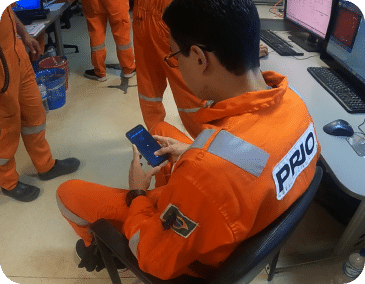

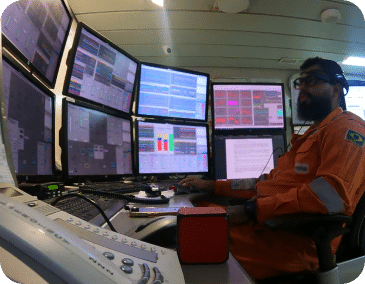
The beginning of Cognittiv solution implementation was marked by a proprietary methodology neuroergonomic analysis, with delivery of an action plan for each opportunity for improvement in the work environment.
Daily cognitive readiness monitoring of the teams participating in the program also began, through the use of the online platform. It consists of a cognitive task that requires the engagement of visual perception and attention, short-term memory, motor action and decision making.
Lasting approximately two to three minutes, the participant’s performance is analyzed, in real time and on a daily basis, through psychophysical methods that allow quantitative estimation of a set of metrics.
PRIO, a publicly traded Brazilian company focused mainly on oil and gas production, sought Cognittiv with the desire to increase the operational safety of its Frade Platform. Cognittiv proposed the use of technology and science, bringing an innovative solution, with the monitoring of the cognitive readiness of the onboard teams, in a simple and effective way. Thus began the partnership of the two companies, in early 2024. About 30 people participate in the program, onboard and at the forefront of various areas of operation, such as production, crane and ballast.
Results of the analysis of incidents recorded five months before the start of Cognittiv’s operation, and five months after.
A monitoring of incidents related to human error was carried out, referring to five months prior to the start of the program and the five months following this start.
A 45% reduction in incidents due to human error was observed.
In the six months prior to the start of the program, six incidents with production loss between 6h and 12h were recorded. This number dropped to zero in the following four months.

Cognitive Readiness Monitoring in Risk Management in High Complexity Environments
Cognitive functions are shaped by a dynamic interaction of internal and external stimuli.
This complex interaction influences fundamental cognitive components, especially perception, attention, memory, learning and decision making.
In this project, the challenge was to develop a method simple, fast and sensitive enough to detect fluctuations in cognitive readiness and other metrics associated with it, such as motor readiness, impulsivity control and accuracy.
The Cognittiv application was able to detect a significant drop in the levels of all measured metrics, evidencing its sensitivity in monitoring fundamental cognitive functions.
A group of 35 volunteers was studied under controlled conditions, in which the temporal evolution of cognitive readiness and other associated metrics was investigated after ingestion, in a single dose, of a mixture of vodka and orange juice containing 700 mg of alcohol per kg of body mass (equivalent to the ingestion, by a person weighing 70 kg, of 3 to 4 doses of 40% vodka).
With this challenge in hand, we conceived and developed the Cognittiv application, which consists of a cognitive task that requires, in its execution, the engagement of visual perception and attention, short-term memory, motor action and decision making. Lasting approximately three to four minutes, the participant’s performance is analyzed, in real time, through psychophysical methods that allow quantitative estimation of the set of metrics mentioned above.
The larger graph displays the time course, at 30-minute intervals, of metrics expressing cognitive readiness (Cog Read), motor readiness (Mot Read), impulsivity control (Imp Cont) and accuracy measured by the Cognittiv application after ingestion of 700 mg of alcohol per kg of body mass (t = 0). The inset in the lower right corner shows the time course of blood alcohol levels in the control (placebo) and experimental (alcohol ingestion) groups, reaching, in the latter, values between 65 and 75 mg of alcohol/100 ml blood in the 90 minutes after ingestion of the mixture (a.u.: arbitrary unit; min: minutes; [Alcohol]blood: blood alcohol concentration).
*Study approved by the Human Research Ethics Committee of the Institute of Biomedical Sciences of the University of São Paulo with opinion number 7,151,420 (CAAE: 78711224.9.0000.5467).
© COPYRIGHT – COGNITTIV - 2024. ALL RIGHTS RESERVED.